Description
ABSTRACT
Corporate Insanity as a Defence to the Crime of Tax Evasion: Untying the Knotty Legal Issues in the Criminal Liability of Corporations
Olagoke Odubunmi*
Criminal liability of corporations has become one of the most debated topics of the 21st century. The debate became especially significant following the 1990s, when for instance both the United States and Europe were faced with an alarming number of environmental, antitrust, fraud, food and drug, false statements, worker death, bribery, obstruction of justice, and financial crimes involving corporations. These corporate crimes resulted in great losses of tax revenue for governments, enormous losses of money, jobs, and even lives. At the same time, the long-term effects of these crimes, such as the damaging effects upon the environment or health, which may not severely affect us now, cannot be underestimated. The reaction to this corporate criminal phenomenon has been the creation of juridical regimes that could deter and punish corporate wrongdoing. corporate misconduct has been addressed by civil, administrative, and criminal laws. At the present, most countries agree that corporations can be sanctioned under civil and administrative laws. However, the criminal liability of corporations has been more controversial. While several jurisdictions have accepted and applied the concept of corporate criminal liability under various models, other law systems have not been able or willing to incorporate it. Critics have voiced strong arguments against its efficiency and consistency with the principles of criminal law. In relation to the crime of tax evasion within the Nigerian jurisdiction, this article seeks to appraise the criminal liability of corporate entities in Nigeria and further seek to answer the question whether in deserving circumstances, the Defence of Corporate Insanity could avail such corporate entities within the confines of the Nigerian criminal and tax laws when charged with tax evasion.
INTRODUCTION
One of the enduring controversies of corporate criminal liability surrounds the basis of ascription of liability itself. The importance of finding the most appropriate method of ascribing liability cannot be overstated. Not only does it represent the intellectual foundation of corporate criminal liability, it also may, in part, determine whether or not any system of corporate criminal liability engenders widespread public support. Only in circumstances where the basis of liability is seen to be fair and justifiable can broad endorsement be expected. Consensus on the issue of the appropriate basis of liability has so far eluded Anglo-American jurists.1
One of the most pressing tasks facing contemporary ethical and legal thought is the development of intellectually sound and effective approaches for assessing the moral and legal implication of individuals acting within the context of collectivities such as corporations and of the actions and policies of these collective entities themselves.2
*LL.M, BL. A Private Legal Practitioner based in Lagos
- Richard Mays, ‘Towards Corporate Fault as the Basis of Criminal Liability of Corporations’ Mountbatten Journal of Legal Studies, 67-88 at 31
- J. Surber, ‘Individual And Corporate Responsibility: Two Alternative Approaches’ (1983) 2 Business and Professional Ethics Journal 67

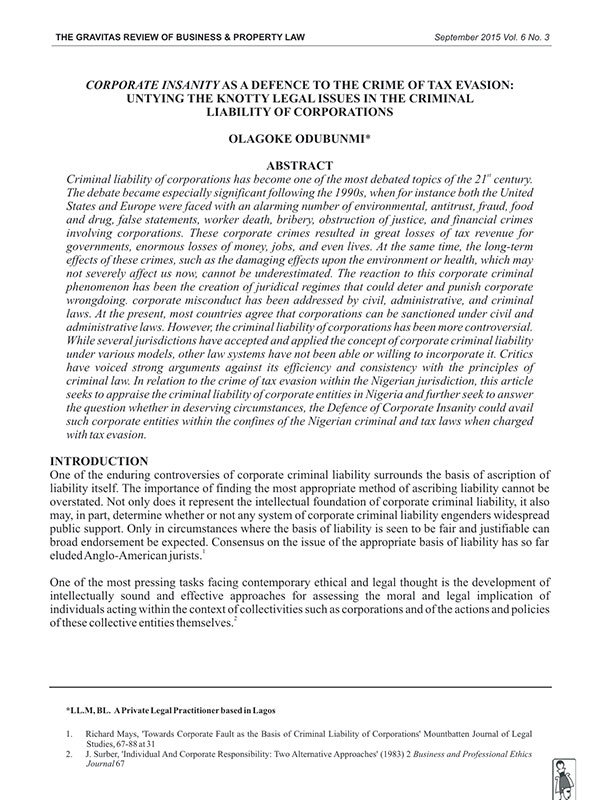
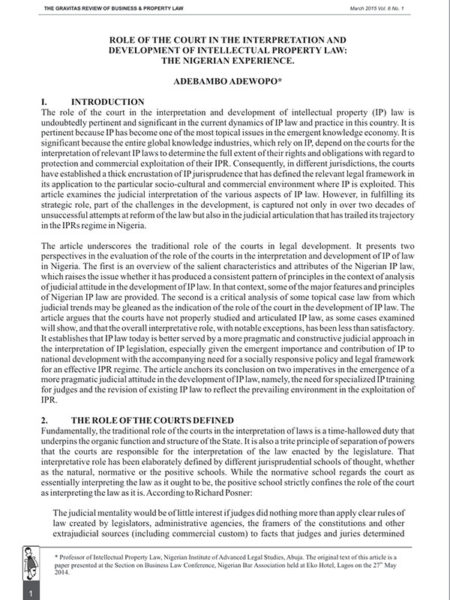
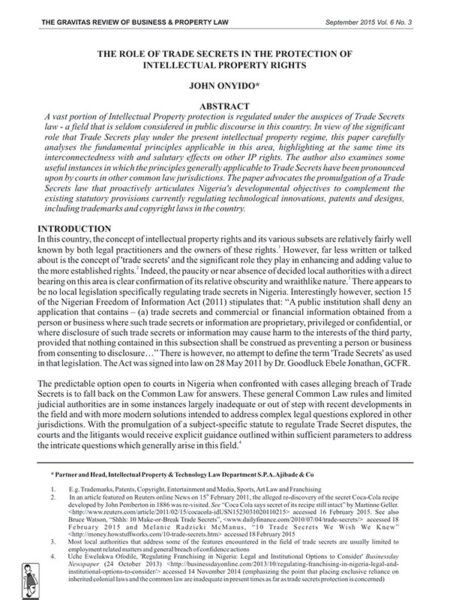
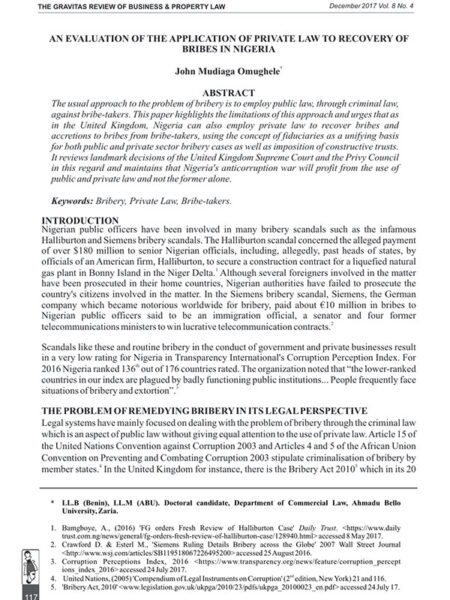
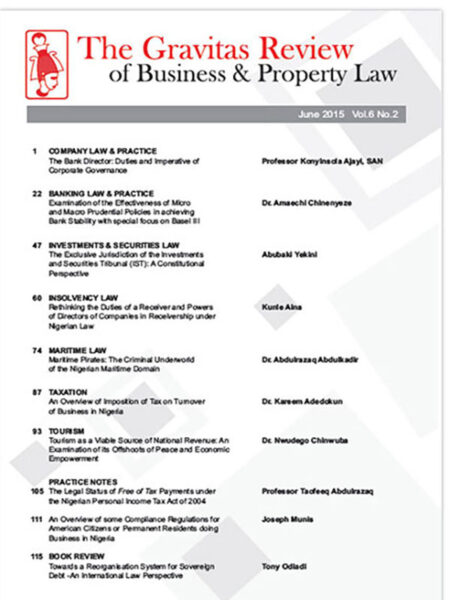


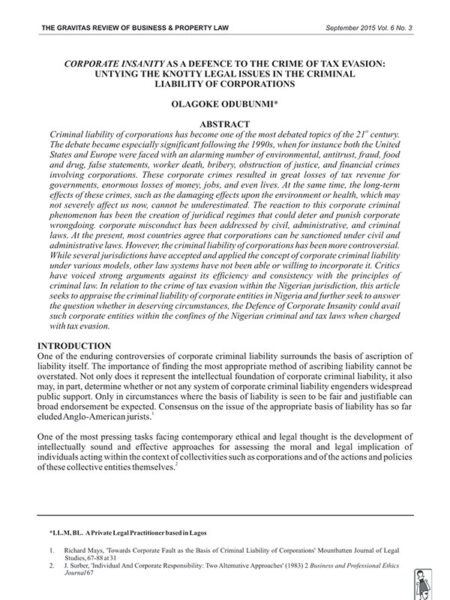
Reviews
There are no reviews yet.